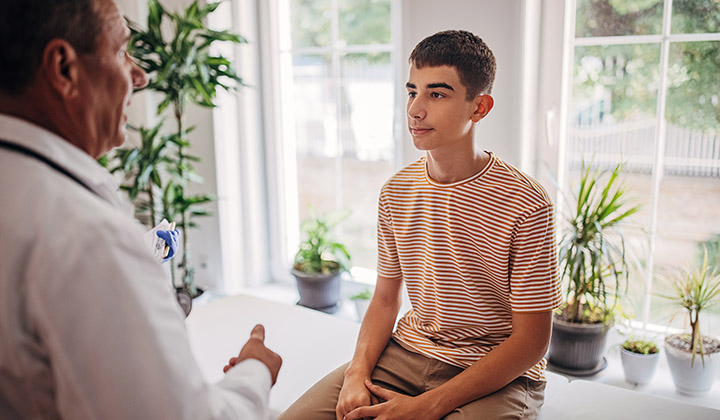Get updates
Have a parenting hack to share? Or a topic you'd like to see?
Adulting 101: how to talk to your teen about family medical history

As teens grow up, they start to take more control of their own health. One way parents can help is by teaching them about their family’s medical history. This helps teens understand their health better and talk to doctors with more confidence. We have tips to start these talks and support your teen along the way, so they can take charge of their health care journey.
Why it matters
When teens go to the doctor alone, they need to be able to explain their health history. If they have a chronic condition or a family history of certain illnesses, this is even more important.
Knowing your family’s medical history helps doctors give better care and also helps teens feel more in control.
When to start
You don’t have to wait until they’re 18. Here’s a simple guide:
- Ages 12–14: Teach them how to talk about their health in basic terms. For example, “I have asthma and use an inhaler.”
- Ages 15–17: Start talking about family medical history. Help them understand why they take certain medicines and how to answer questions at appointments. They should also be able to recognize emergencies related to their health conditions and take medications on their own on time.
- By age 18: They should be able to explain their health and family history on their own. They should also be able to select a doctor on their own, as well as make appointments and order medications.
How to talk about it without scaring them
Start small. You can say things like, “I take this pill because I have high blood pressure,” or, “I get this test every year because of our family history.”
If your teen hasn’t had many health problems, involve them in a conversation with their pediatrician about how your health might affect them. The doctor can help explain it in a way that makes sense and doesn’t feel scary.
Show them how to talk to doctors
Teens learn by watching you. Here are some ways to model good health habits:
- Talk about your own doctor visits.
- Let your teen answer questions at their appointments.
- Step out of the room for part of the visit if they’re ready.
- Show them how to use the patient portal to ask questions or check test results.
Use tools that help
There are apps and trackers out there, but the best tool might be the one you already have—your patient portal. Encourage your teen to use it to learn more about their health and ask questions.
Children’s Mercy also has helpful tools like:
What parents sometimes get wrong
Some parents think teens don’t care or that it will stress them out to be too involved. But teens are smart. They notice when something is going on.
Instead of hiding things, think of it as giving them the tools they need to take care of themselves. You’re helping them be ready for the future.
Talking about family medical history is a big step toward helping your teen become an independent adult. Start early, keep it simple and work with your care team. You’re not just sharing facts—you’re building confidence.
Additional resources:
- Children’s Mercy Transition to Adulthood Program
- Roadmap: Independently Managing Care
- Roadmap: Ongoing Support in Care
- United Way 2-1-1
- Lift Up KC
